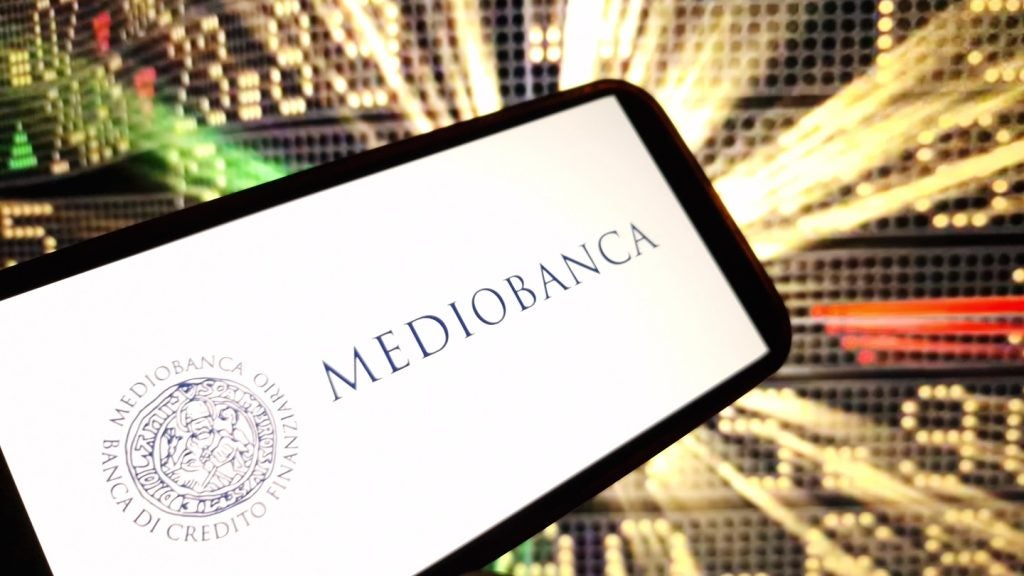
Philipp Pieper, CEO and Co-founder of Swarm Fund, which describes itself as the Blockchain for private equity, explains why new investment models based on blockchain technology are set to revolutionise the wealth management landscape, offering radical new ways of investing in crypto assets
The crypto asset market currently stands at $265bn, so there is a long way to go before it can be considered a mainstream asset class.
How well do you really know your competitors?
Access the most comprehensive Company Profiles on the market, powered by GlobalData. Save hours of research. Gain competitive edge.

Thank you!
Your download email will arrive shortly
Not ready to buy yet? Download a free sample
We are confident about the unique quality of our Company Profiles. However, we want you to make the most beneficial decision for your business, so we offer a free sample that you can download by submitting the below form
By GlobalDataBut blockchain and crypto are here to stay.
Switzerland has its own Crypto Valley, the United Kingdom has a vibrant fintech sector and trails only the United States, the largest market, in blockchain start up activity.
Singapore, meanwhile, is considered a leading ICO hub in Asia.
Blockchain is fundamental to the existence of cryptocurrencies and crypto assets; the technology underpins all crypto activity.
They have until now operated in parallel to the investment world. But as the technology evolves, we are seeing a blurring of the lines.
Blockchain underpins future of wealth management
The CEO of UBS Group, Sergio Ermotti recently stated on CNBC that blockchain technology is “almost a must-have for business” He is right.
There are compelling operational efficiencies; it will be an integral part of the operations process for wealth and asset managers. But there are even more compelling reasons why blockchain will revolutionise the way we manage our assets.
Last year, there were two main developments that brought blockchain a step closer to mainstream investment: firstly, latest technology enabled the creation of new blockchain platforms such as Ethereum, Stellar and Hyperledger.
Smart contracts
These are completely new decentralised business models and through the use of ‘smart contracts’ (software that mimics the logic of a business agreement) they enabled the tokenisation of assets.
Tokenisation of assets is similar to the process of securitisation except that the assets are represented digitally rather than on paper.
Using blockchain, asset-backed tokens represent what are described in the crypto community as real-world assets.
They are issued by tokenised investment funds and operate like a traditional share or stock.
They provide investors with digital ownership, tradeability, fractionalisation (where unrelated parties can share and mitigate the ownership and risks of a high-value tangible asset) and strict governance.
Secondly, and as a result of these technology developments, there was a massive increase in the number of tokenised assets launched via Initial Coin Offerings (ICOs), resulting in significant inflows of capital from a more diverse set of investors.
ICOs which provide funding for start ups and projects, last year raised $5.6 billion in capital. This compares to $240 million in 2016 according to Fabric Ventures and TokenData.
Almost one third of the ICO launches funded blockchain infrastructure projects.
New investment platforms
The explosion in ICO launches has also resulted in the emergence of blockchain-based investment platforms.
These platforms accept both cryptocurrencies and asset-backed tokens as a form of payment. They accept fiat currency although it requires a high minimum investment.
These platforms offer opportunities that are usually only accessible to venture capitalists and institutional investors, and the funds range from pre-IPO technology and crypto hedge funds to renewables, agriculture and impact investments.
With returns reported by some funds to be as high as 30-50%, in some cases higher, the surge in popularity is no surprise.
What about the risks?
Because they are based on the value of real assets, the risks associated with cryptocurrencies do not relate to asset-backed tokens.
They offer liquidity in many investments that are usually illiquid in fiat currency, and crucially, are not directly affected by the volatility of Bitcoin or Ether.
These tokens are not correlated with any other digital assets or the crypto market because they are based on the value of tangible assets.
They operate in the same way that one buys a share and are regulatory compliant and traceable.
The funds have a proven track record and investors will still be required to go through the same due diligence and accreditation processes as for any other regulated funds, and where applicable they will own a share of the physical assets.
Bridging the gap between digital and real assets
Traditional investors want access to these highly lucrative markets but don’t want to put their capital at risk.
Using blockchain-based investing platforms to invest in tokenised and innovation-led investment funds offers a practical and prudent way to invest in crypto and alternatives.
And with most crypto investors having between 70-90% of their net asset value in cryptocurrency, many are looking for opportunities to diversify into more secure and non-correlated assets, the platforms provide crypto investors with outlets for de-risking their portfolios
Although, it is still early in the market cycle, there is no doubt that blockchain and the crypto market are set for exponential growth.
These investment platforms bridge the gap between digital currency and real assets, offering a revolutionary investment solution to those inside and outside the crypto community.
Blockchain basics
- Blockchain technology is essentially a shared database that holds records of transactions.
- It provides full transparency because the data and any changes are visible by all parties that are allowed access.
The blocks of data are verified by members of the network, usually referred to as miners. It is the technology that supports bitcoin and the other 1500 cryptocurrencies
Swarm Fund uses the power of the blockchain to open up high-return, alternative investment classes to smaller investors through asset-backed funds using cryptocurrency tokens








